Iran Targets Members Of Advocacy Group On US Soil
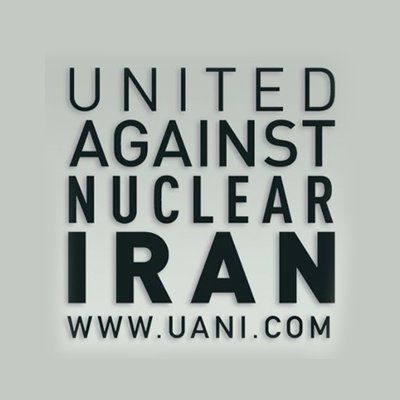
Iranian operatives have targeted several senior members of US-based advocacy group United Against Nuclear Iran (UANI) through surveillance and cyber operations.

Iranian operatives have targeted several senior members of US-based advocacy group United Against Nuclear Iran (UANI) through surveillance and cyber operations.
According to a report by The Dispatch, members of the New York-based think tank have been the subject of suspected Iranian surveillance operations carried out on US soil as well as various phasing operations believed to be carried out by a cyber warfare group linked to the Islamic Republic.
The report said in addition to threats against former National Security Advisor John Bolton and former secretary of state Mike Pompeo, those being targeted include UANI CEO and former US Ambassador to the United Nations under the George W. Bush administration Mark Wallace, the group’s original funder Thomas Kaplan, and former Democratic Senator Joe Lieberman from Connecticut who currently serves as the chairman for UANI.
In cyberspace, suspected Iranian hackers have attempted to carry out various phishing operations on UANI members. According to UANI these hacking campaigns are the work of Charming Kitten, an Iranian government-linked cyberwarfare group.
Kaplan told The Dispatch, “The threat existed from the very beginning. It’s just gotten more and more pervasive. I’d been sort of given signals that the Iranians were watching, and that didn’t inhibit me. And it still doesn’t inhibit me despite the fact that the threat level is now at an official level.”
“The threats to Americans are multiple, pervasive, and systematic. This is a strategic effort by the Iranians to intimidate, exert their strength—a show of force—because they feel like they can either manage, or deal with, or temper any response,” Wallace said.

Informed sources tell Iran International that at least 90 Iranian Baha'i students have been barred from universities this year due to a secret government policy.
The United States-based Human Rights Activists' News Agency (HRANA) reported Thursday that so far It has identified 62 Baha'i students who took the university entrance examination this year and were rejected for their faith.
HRANA has provided a list of the rejected Baha'i applicants. As in previous years, the applicants were told that the reason for their rejection was “incomplete application”.
The real number of Baha'i students deprived from higher education is likely to be higher as many prefer not to make their cases public. Some go on to join the Baha’i Institute for Higher Education (BIHE) to carry on their studies.
A Baha’i student who passes the university entrance exam --the mandatory route for students wishing to gain admission to universities – even with top marks, can still be rejected because of a secret rule to Exclude Baha’i students. Baha’i applicants receive a notice of “deficient documentation” for their application and complaining to authorities has no effect in changing their circumstances.
According to Justice for Iran, a London-based human rights group, Mohammad-Reza Hashemi-Golpayegani, former secretary of the Supreme Council of the Cultural Revolution, had a key role in mandating the ban on Baha'i students’ exclusion from universities.
The council’s directive has been implemented since 1991 whenHashemi-Golpayegani served as its secretary. The directive stipulated that Baha’i children could go to school as long as they didn't profess their religion in public.
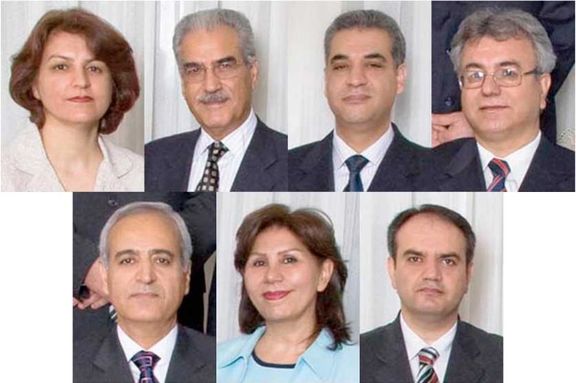
Most of the council’s members are appointed by Supreme Leader Ali Khamenei.
The Shia clergy consider the Baha’i faith as a heretical sect. Bahai’s, who number around 300,000 in Iran, are systematically prosecuted, discriminated against, and harassed. They cannot hold jobs and the public sector and are sometimes sacked from their jobs in the private sector under pressure from authorities.
Simin Fahandej, a spokeswoman for the Baha'i International Community, said in March that over 1,000 Baha'i citizens in Iran were awaiting trial and sentencing. she also said confiscation of Baha'i citizens’ assets and handing them over to the Execution of Imam Khomeini's Order (EIKO), which is known in Persian simply as Setad, has been on the rise and the past few years.
EIKO is a huge business conglomerate, presented as a charity, directly run by Supreme Leader Ali Khamenei’s office. EIKO was sanctioned on January 13, 2021, days before President trump left office, under the Executive Order (E.O.) 13876, which was imposed for Iran’s regional destabilizing activities and its missile program.
Several countries including Canada, the United States, and Britain have expressed concern over the Islamic Republic’s systematic prosecution, harassment, and discrimination against the Baha'i minority.
“The UK is deeply concerned by increasing arrests of the Baha’i in Iran, including recent reports that the Iranian government has demolished houses and confiscated land in Roushankouh, [northern] Iran. Former spiritual leaders of the Baha’i in also reported to have been detained,” Tariq Ahmad, Britain's minister of state for South Asia and the Commonwealth at the Foreign Office, said in a press release on Aug 5.
On August 3, the US State Department’s Office of International Religious Freedom called on the Islamic Republic to stop its ongoing oppression, saying that “Amid a continued rise in arrests, sentences, and imprisonments, the US urges Iran to halt its ongoing oppression of the Baha'i community and honor its international obligations to respect the right of all Iranians to freedom of religion or belief.

Sepideh Rashno, an Iranian woman who refused to wear a headscarf and whose video of a quarrel with a hijab enforcer went viral last month, has been charged with propaganda against the Islamic Republic.
Iran's Judiciary Media Center quoted Revolutionary Court Judge Iman Afshari as saying on Saturday that Rashno was summoned from the prison and was served her indictment issued by the prosecutor's office. He added that she will be officially tried in the near future.
She is accused of “association and collusion with the intention of committing a crime against the country's security through communication with foreigners and propaganda activity against the Islamic Republic and encouraging people to commit corruption and prostitution."
On Monday, August 15, some women's rights activists staged flash mobs in Tehran to demand information on her whereabouts. She has reportedly been in detention at the IRGC ward of Tehran’s Evin Prison since her arrest on July 16 after the video of her row with a woman enforcing hijab rules went viral on social media.
In a move that was condemned by many activists and people on social media, the state-run television (IRIB) aired on July 31 the so-called ‘confessions’ of the 28-year-old artist, writer and editor.
She was tortured and forced to denounce herself and other activists, and express regret for her confrontation with the hijab enforcer and posting her video on social media. She had been so brutally beaten before the telecast that she was suffering from internal bleeding.

Former State Department Spokesperson Morgan Ortagus has denounced the Biden Administration for alleged concessions to Iran to revive the 2015 nuclear deal, JCPOA.
Ortagus told Iran International on Friday that while the Iranian regime is in a bad situation, the Biden administration wants to provide money to the Islamic Republic which will lead to more terrorism across the Middle East and the world.
In the latest case of Congressional opposition to reviving the deal, a group of senators has introduced a bill making sanctions “permanent.” The Solidify Iran Sanctions Act 2022 would abolish the ‘sunset’ clauses in the 1996 Iran Sanctions Act (ISA) set to expire 2026.
A leaked report on alleged remarks by Iran's chief nuclear negotiator Ali Bagheri-Kani provides details on "concessions" Iran claims to have received from the US.
As part of the new deal, Iran reportedly will release all US prisoners once $7 billion of its assets frozen in South Korea are released. Bagheri said Iran and the US had earlier agreed on this, but US reneged on its promise, assuming that the money will give Iran financial breathing room to raise new demands.
US regional allies Israel and Arab Persian Gulf States were opposed to the original JCPOA and are concerned over its revival four years after former President Donald Trump withdrew from the agreement calling it a bad deal.
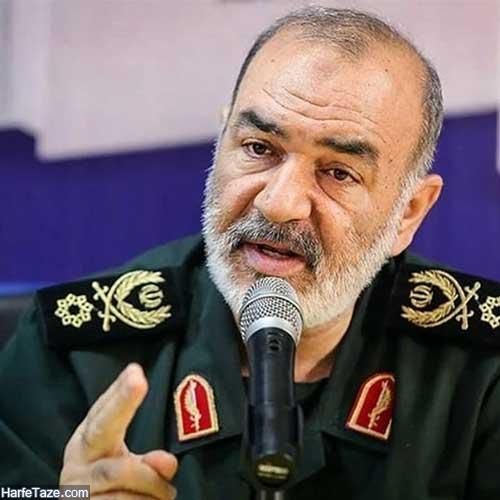
The commander of the Revolutionary Guard (IRGC) says the war between Israel and Palestinians is not limited to Gaza and has expanded to the West Bank.
In an interview with the official website of Iran’s Supreme Leader published on Friday, Major General Hossein Salami said that “the flames of resistance that were ignited in the occupied territories have never been extinguished and you constantly observe that these struggles continue in all Palestinian territories.”
Praising the attacks by the Palestinians against the Israelis, he claimed many Israelis have been killed in the operations by “resistance groups inside the occupied territories,” in the past several months. He added that the number of Israelis killed is significantly higher than the previous year.
Salami said that the Palestinians have evolved in their military capabilities and can now target any part of Israel, claiming that there is no safe place for Israelis that Palestinians' rockets cannot reach. He also said that “if you add Lebanon's Hezbollah to this equation, you realize that hundreds of thousands of rockets arrayed against the Zionist regime can be fired from the north and west in the Gaza Strip and in the north, from Hezbollah's side.”
“Missiles are great for deterrence and conducting static wars, but the rocket is not the liberator of the land – the infantry must set foot on the ground and liberate the land step by step,” he added.
Earlier in the month, Ali Khamenei praised the Islamic Jihad for “uniting Anti-Israeli Resistance” and “displaying the integrity of the Palestinian nation’s jihad.”

A notorious commander of Iran's Revolutionary Guard (IRGC), previously expelled from Syria, was in charge of operations to kill Israelis, Iran International has learned.
General Javad Ghaffari, the IRGC Qods Force commander who had reportedly been expelled from Syria last November for ‘major breach of Syrian sovereignty’, led the IRGC Intelligence Organization's plots to kill Israelis in Turkey in the past nine months, a former senior IRGC official told Iran International.
After returning from Syria, Ghaffari was appointed as the deputy head of IRGC Intelligence Organization for Special Operations, where he orchestrated a series of failed attacks against Israeli citizens, the Iranian source said.
In the latest case in June, Turkey's National Intelligence Organization (MIT) thwarted a planned attack against Israeli diplomats and tourists in Istanbul. MIT said that it detained eight suspects allegedly working for an Iranian intelligence cell.
Ghaffari was the third commander of the Iranian forces in Syria since 2011 when Iran began its large-scale intervention in Syria's civil war. He started his career in Syria as one of the commanders at the Iranian forces' headquarters in Damascus and was later appointed as the commander of the forces in Aleppo - where he became known as the 'Butcher of Aleppo'.
There, he led Iranian forces as well as their Lebanese Hezbollah proxies and Afghan mercenaries, the Fatemiyoun, until he was allegedly ousted by Assad.
Ghaffari was expelled from Syria as he was "accused of ‘major breach of Syrian sovereignty’ after attacking US forces, and deploying Iranian weapons to unapproved places," the Times of Israel quoted Saudi sources as saying.
According to the Times, it was reportedly Syria that shunned Ghaffari for "nearly starting a war with Israel," and "almost causing an unwanted regional war."
Back-to-back failures
Ghaffari's expulsion from Syria not only did not result in his retirement, but also won him a senior position at the IRGC Intelligence Organization (SAS).
His failures at SAS outraged many IRGC officials, and finally prompted Iran's Supreme Leader Ali Khamenei to sack the organization's controversial, but powerful chief Hossein Ta'eb, who had run SAS for 13 years.
However, Ghaffari was not the first or only official responsible for SAS operations overseas. His predecessor Reza Seraj had also been sacked for a failed plot to kill Israelis in Cyprus.
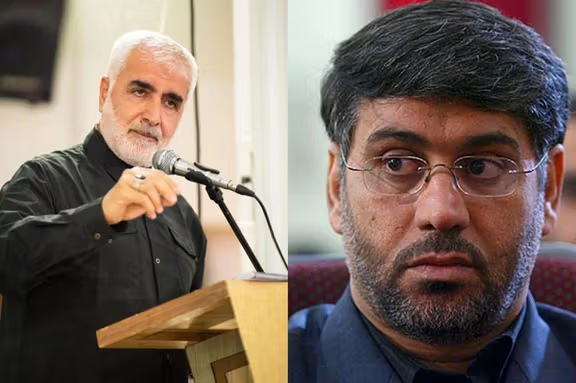
Another key figure in the unsuccessful attempts to assassinate Israelis in Turkey was Rouhollah Bazghandi, the deputy head of the SAS counterintelligence (Unit 1500), the former senior IRGC official told Iran International.
Bazghandi was in charge of the June operation to assassinate former Israeli Consul General in Istanbul, Yosef Levi Sfari, as well as three Israeli women tourists.
By using amateur agents to carry out the attacks against Israeli targets in Istanbul, Bazghandi dealt a heavy blow to IRGC Intelligence Organization, the source told Iran International.
He was also in charge of thwarting plots to assassinate Iran's security officials inside Iran; however, Hossein Ta'eb used him for his extraterritorial operations, and apparently his absence, among other reasons, turned Iran into a safe haven for Israeli Mossad agents who launched several sabotage operations and assassinations, killing Colonel Hassan Sayyad Khodaei, other key figures and scientists in Iran's drone, missile and nuclear program.
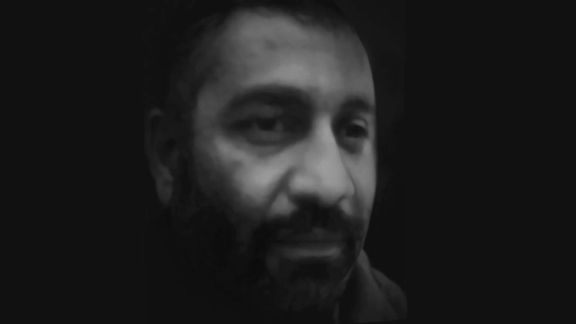
On May 22, two assailants on a motorbike fired several bullets at Col. Sayyad-Khodaei outside his home in broad daylight, prompting Iranian officials to accuse Israel of organizing the attack, and vowed revenge.
This incident was followed by more mysterious deaths of IRGC officers and weapons experts, which were again blamed on Israel that has not denied responsibility as it is engaged in a secret war with the Islamic Republic.